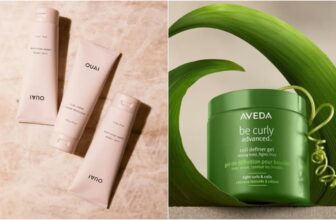Why I Hate Using Relaxer on My Hair
For many years, using relaxers on hair has been a popular practice among women looking to achieve straighter and smoother locks. However, for me personally, the idea of using a relaxer on my hair has always been met with hesitation and ultimately disdain.
The topic of using relaxers on natural hair isn’t just a casual conversation—it’s deeply personal. As someone who has experienced the ups and downs of hair care, I’ve come to strongly dislike using a relaxer on my hair. This sentiment isn’t just about preferences; it’s about understanding the complexities and challenges that come with altering natural hair textures.
While the appeal of straight or relaxed hair for its sleek appearance and easy manageability is undeniable, the potential risks and challenges associated with relaxer use cannot be ignored. Through personal experience and research, I’ve come to realize that a poorly done relaxer can lead to significant hair damage that can be challenging to repair. Whether opting for at-home relaxer applications or seeking professional treatments, there’s always a risk of mistakes that can have long-lasting effects on hair health.
Ahead are some of the evidence I have, from mild to more serious potentials that relaxer might be bad news on your hair, along with tips for maintaining healthy hair if you frequently use relaxers.
The Cons of Using Relaxer on Your Hair
One of the primary reasons for my dislike of relaxers is the presence of harsh chemicals in these products. Relaxers typically contain sodium hydroxide or calcium hydroxide, which work by breaking down the protein bonds in the hair shaft to achieve a straightened texture. However, these chemicals can also lead to significant damage over time, including hair breakage, thinning, and overall weakening of the hair structure.
The chemical composition of relaxers can also cause irritation and sensitivity on the scalp. Many people, myself included, have experienced discomfort, itching, redness, and even chemical burns as a result of relaxer applications. This constant irritation not only affects the physical health of the scalp but also impacts the normal hair care experience.
I came across a post on Instagram that really caught my attention. A woman shared her experience of transitioning back to natural hair after using a relaxer for a long time. She mentioned that her fibroids, which had previously shrunk, suddenly increased in size after relaxing her hair again. In her own words, she believed there was a connection between the two.
While some commenters argued that this might be purely coincidental and vary from person to person due to individual body and blood differences, others echoed similar experiences.
“Exactly why I stopped using relaxers years ago,” a user who commented on the social media post wrote Another commented, “I stopped relaxing my hair after my fibroid surgery, and it’s been over 4 years without any regrowth. I don’t plan on relaxing my hair again.” There were also mentions of research linking relaxers to uterine disorders and cancers, with one commenter saying, “It’s been proven by research. Relaxers are associated with uterine disorders and cancers.” Another pointed out, “I’m not surprised. Going natural is the way to go. Interestingly, those who invented relaxers don’t use them.”
The post sparked a wave of confirmations and personal experiences. And, you know that when multiple people start sharing similar concerns, it’s a clear indicator that the topic deserves further scrutiny and consideration.
Also, maintaining relaxed hair requires regular touch-ups to keep the straightened texture consistent as new growth emerges. This continuous exposure to chemicals during touch-up sessions can further contribute to hair damage and breakage. The time-consuming and costly nature of maintaining relaxed hair adds another layer of challenge, making it a less appealing option for those seeking a low-maintenance hair care routine.
While relaxed hair may offer the convenience of a straightened texture, it often comes with limitations in terms of styling versatility. Natural hair textures allow for a wide range of styling options, from curls and waves to intricate updos, while relaxed hair tends to have a more uniform appearance. This lack of diversity in styling can be frustrating for individuals who enjoy experimenting with different looks and textures.
Some studies have suggested links between relaxer use and scalp disorders, hair loss, and even more serious health issues. While the scientific evidence is not conclusive, the uncertainty surrounding these risks can contribute to a reluctance to use relaxers on hair.
Healthy Alternatives to Using a Relaxer on Your Hair
For those, like me, who still desire straightened hair but are wary of the health risks associated with relaxers, there are alternative options to consider
Natural Hair Growth
Embracing natural hair growth is a popular alternative to relaxers. By allowing your hair to grow without chemical treatments, you can maintain its natural strength and texture. Using organic hair care products can help nourish and strengthen your hair, promoting healthy growth and minimizing damage.
Heat-Free Straightening Methods
Instead of using relaxer, you can opt for heat-free straightening methods like blowouts or flat ironing. These methods offer temporary straightening without the long-term effects of chemical relaxers. It’s important to use heat protectant products to minimize heat damage to your hair.
Non-Chemical Relaxers
Some hair care brands offer non-chemical relaxers that use gentler formulas to achieve a straightened look. These products often contain natural ingredients like keratin or plant extracts, which can help soften and smooth the hair without the harsh effects of traditional relaxers.
Protective Hair Styles
Protective styles like braids, twists, and buns can help reduce the need for constant styling and manipulation, which can contribute to hair damage. These styles also promote healthy hair growth by protecting your hair from environmental factors and minimizing breakage.
Choosing the right hair care routine is a personal decision that should prioritize the health and well-being of your hair and scalp. While relaxers may offer temporary straightening benefits, the potential health risks should not be overlooked.
Exploring alternative options like the aforementioned ones above can help you achieve your desired look while maintaining healthy hair. Ultimately, it’s about finding a hair care routine that works best for you and aligns with your values and priorities.
Photo: Nappy/Pexels






